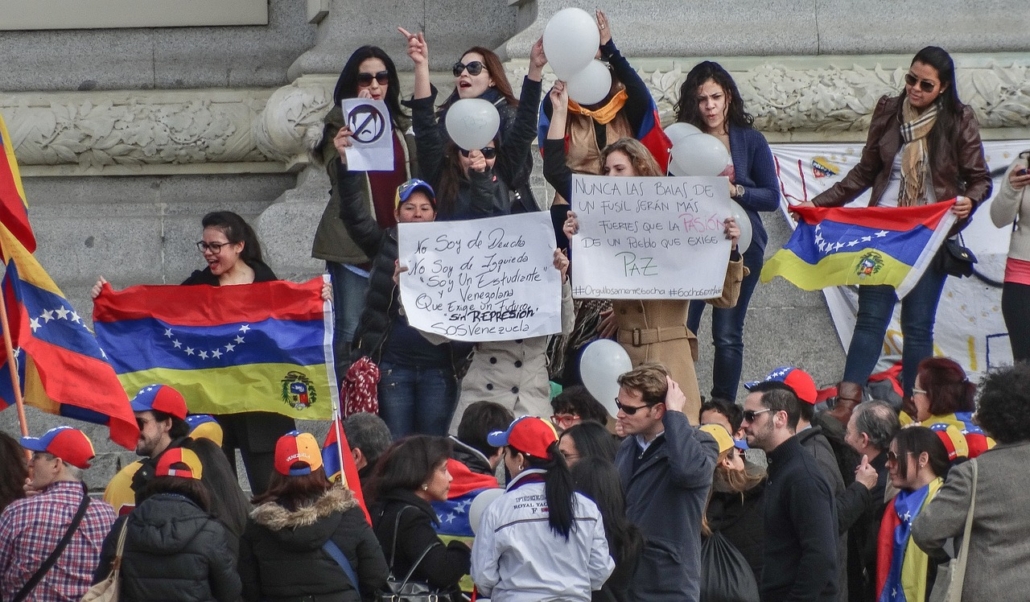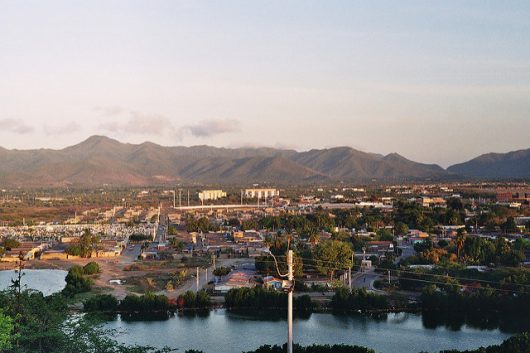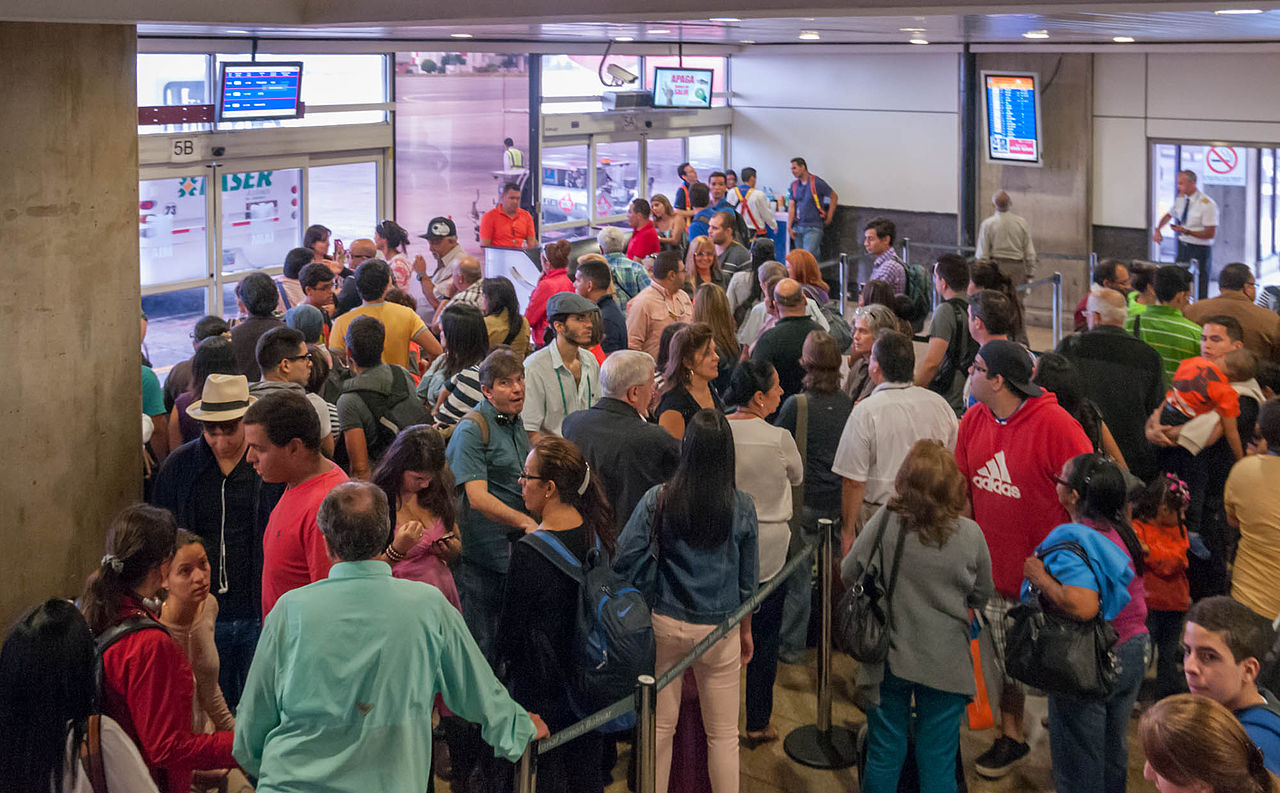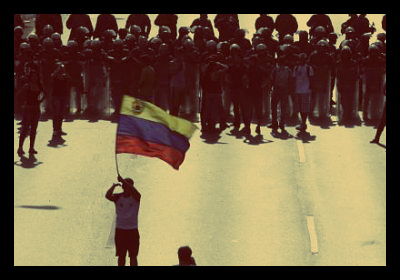 Supported by China’s International Poverty Reduction Center, President Nicolás Maduro of Venezuela announced Venezuela’s new poverty reduction program to combat inequality and tackle extreme poverty. The partnership came after President Nicolás Maduro’s trip to China earlier this year, in September, where the Venezuelan president met with President Xi Jinping in Beijing to develop economic ties.
Supported by China’s International Poverty Reduction Center, President Nicolás Maduro of Venezuela announced Venezuela’s new poverty reduction program to combat inequality and tackle extreme poverty. The partnership came after President Nicolás Maduro’s trip to China earlier this year, in September, where the Venezuelan president met with President Xi Jinping in Beijing to develop economic ties.
The result of the meeting led to the agreement of the “all-weather strategic partnership” between the two nations. These include the 31 new bilateral cooperation agreements focusing on developing the Venezuelan economy in various sectors such as oil, tourism and the renewed investment for the country’s national electric grid that has remained stagnant due to a lack of financial support. Moreover, the agreement will increase Venezuelan exports to China, such as avocados and coffee, to strengthen the nation’s economy. The launch of the new “Social Equality and Happiness Mission” will be closely supported by China’s International Poverty Reduction Center, with President Maduro emphasizing that Venezuela’s poverty reduction program will adapt to Venezuela’s culture and needs.
Poverty and the Economic Crisis in Venezuela
The decision came in response to the country’s increasing economic decline and subsequent severe rise in poverty. In 2010, 32.5% of Venezuela’s population lived in poverty, whereas 8.8% lived in extreme poverty. However, as the decade progressed, the number of Venezuelans suffering from poverty climbed to 92.3%, and those suffering from extreme poverty made up 63.7% of the country’s population following trade sanctions against Venezuelan state oil companies from the United States.
The sanctions proved detrimental to the Venezuelan economy as it remained dependent on prominent oil exports. This contributed to the nation’s hyperinflation and increased national debt to 159.47% of Venezuela’s Gross Domestic Product (GDP). As of 2021, while 90.82% of the nation’s population suffer from poverty, extreme poverty impacts 67.97% of Venezuelans, which means that food shortages impact six out of 10 households across the nation and a drastic increase in the number of Venezuelan refugees fleeing to neighboring Latin American countries such as Colombia. In 2023, the minimum wage in Venezuela is at 130 bolívares, equivalent to $5. This drastic cut in wages and social benefits led to widespread strikes from workers in public sectors, particularly the education sector.
Financial Support to Venezuela
Therefore, the worsening crisis in Venezuela has led to increased foreign aid. In addition to China, the United States has offered substantial financial support for the South American nation. As of March 17, 2023, the United States has announced an additional $171 million to their existing support since 2017 in an attempt to address the humanitarian crisis.
Among the new budget announced, $83.4 million will provide emergency food assistance. Furthermore, $31 million will ensure the country’s development through bridging vital relationships with neighboring states such as Colombia and Ecuador. Moreover, $56.1 million will be dedicated to building integration programs, focusing primarily on marginalized groups such as women and children.
As of 2023, the United States has supported Venezuela in poverty reduction efforts, such as Venezuela’s poverty reduction program, through a total of $2.8 billion investment into essential needs such as access to food, water, health care and rebuilding the country’s economy.
– Remigius Kim
Photo: Pixabay

 Of all households in Venezuela, 35% depend on financial support from family members working overseas. According to local economic researcher Asdrúbal Oliveros, remittances to Venezuela will suffer a heavy blow as a result of the COVID-19 pandemic and its severe effect on the global economy. With an estimated $2 billion decrease in remittances, the health of millions of Venezuelans is in serious danger due to the combined effects of COVID-19 and the Venezuelan Crisis.
Of all households in Venezuela, 35% depend on financial support from family members working overseas. According to local economic researcher Asdrúbal Oliveros, remittances to Venezuela will suffer a heavy blow as a result of the COVID-19 pandemic and its severe effect on the global economy. With an estimated $2 billion decrease in remittances, the health of millions of Venezuelans is in serious danger due to the combined effects of COVID-19 and the Venezuelan Crisis. With the recent political unrest in
With the recent political unrest in  Since 1999 when President Hugo Chavez came into power, more than
Since 1999 when President Hugo Chavez came into power, more than 
